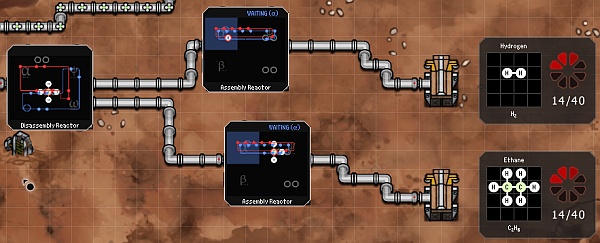That goes for every game ever made. The interaction by itself is pointless. It is only within it's context that it gains meaning.
By that logic, then, Chess and Go are meaningless? Pacman and Tetris are meaningless? Clairvoyance is meaningless?
When you look at it like that, it's no different than any other game. Every piece of software is pre-programed and the player has no choice at all.
Well, that doesn't seem to be true, does it? You might as well say that Chess has no choices because all piece movements are determined by the rules.
I think that's incredibly backwards and a recipe for ludonarrative dissonance. That implies gameplay is somehow more important than artistry.
But, for a game, it's not only more important, it's THE most important element, period. I REALLY think we should stop using "game" for things that clearly aren't, like Kentucky Route Zero and Dear Esther; this misuse is the one thing that is making us disagree. No definition of game you'll find anywhere on any dictionary or encyclopaedia (including wikipedia) can be applied to those two. A more appropriate term would be interactive fiction.
Again, this distinction is important because many gamers aren't particularly interested in interactive, or viceversa, much like, say, many of us might not be interested in radio serials. It's perfectly OK to love interactive fiction, and indeed it's easier to consider them traditional pieces of art, but I feel the divide in intention is so great that it doesn't make sense to judge them using the same set of metrics.
Which, by the way, is another, perhaps the biggest, reason why we disagree. Failure to make this distinction is making us advocate for games to put more emphasis on story or art, or for interactive fiction to have more gameplay elements. See how mentally separating both categories immediately renders that notion absurd?
For the record and so we know where I stand, I loved 999 and I'm loving The Walking Dead, but Dear Esther did little for me, so I'm avoiding interactive fiction like it. I do not subscribe to the notion that a piece of interactive fiction HAS to have definite gameplay elements to be worthwhile, but I do think that careful application of them can enrich the experience immensely.
If you want to make a mechanically challenging game, then go with gameplay. If you want to make a meaningful game, then make it in the way that best expresses that meaning.
Again, this is falling into the trap of thinking that "storyless", or even abstract games, are meaningless.
Don't make your gameplay and then try to hopelessly patch it together. I think this approach is why I never cared a second for any of the story in Braid and I think it would be better without any attempts at storytelling.
I for one loved Braid's storytelling, because it was quite open to interpretation (and I liked the writing), but a case can be made for it being quite divorced from gameplay. I however don't consider that a bad thing or like it less for it, and indeed, I believe that separation is entirely intentional.
Lots of good recommendations here. Try Waking Mars and Superbrothers: Sword & Sworcery EP too.
Actually, Waking Mars could be exactly what he's looking for. Really great and original game, lots of exploration, fair amount of thinking, zero combat. and thinking. I second this recommendation.
Re: SpaceChem, it's easily one of my favorite indie games of all time, and it's particularly appealing to me as software engineer. There's only one other game I've found that's even remotely similar, which is Factorio. In fact, I'd say as a genre it remains an untapped gold mine.




